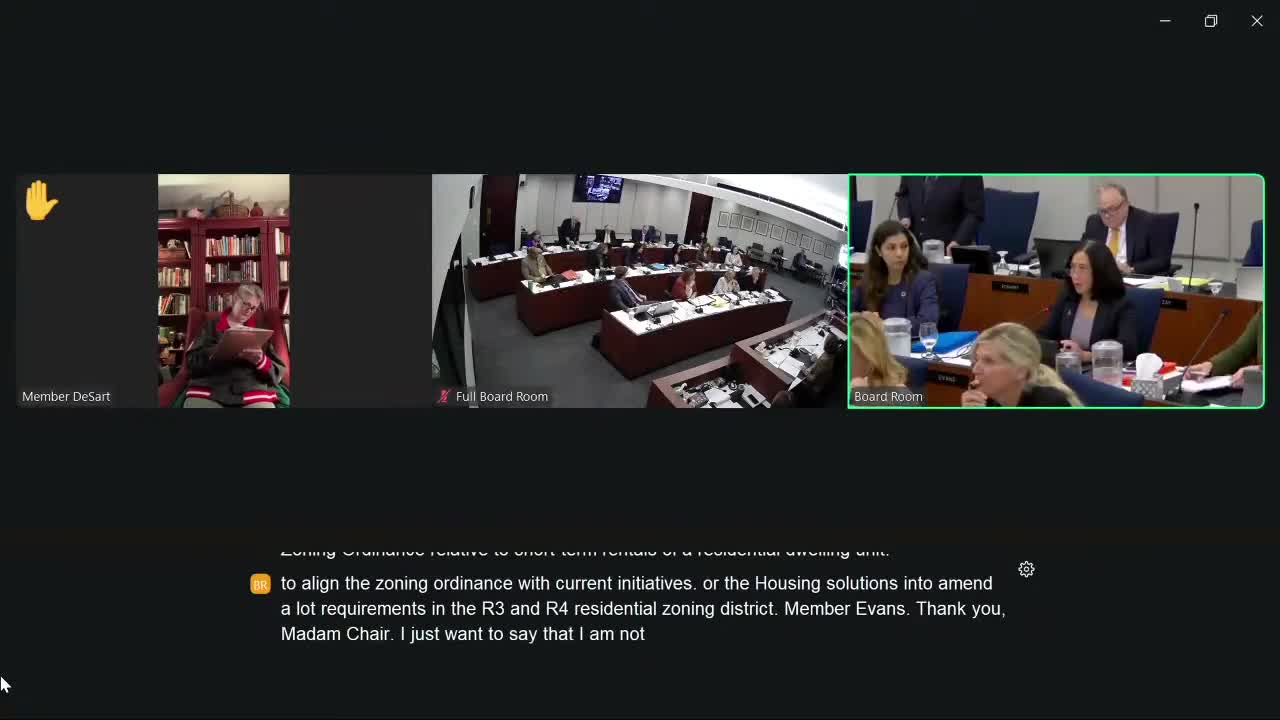DuPage County board approves zoning text amendment to regulate short-term rentals after debate on enforcement and housing goals
Get AI-powered insights, summaries, and transcripts
Subscribe
Summary
After debate over enforcement and links to affordable housing, the DuPage County Board approved a zoning text amendment to define and regulate short-term rentals and amend certain lot requirements in R-3 and R-4 districts. A motion to table the item was raised and later withdrawn during discussion.
The DuPage County Board on Oct. 14 approved a text amendment to the county zoning ordinance to define and regulate short-term rentals (rentals of 30 days or less) and to amend lot requirements in R-3 and R-4 residential districts.
The measure — presented as a text amendment to DuPage County Zoning Ordinance ZON-22-13 and identified in the packet as DCO 48-25 / zoning-2557 (text amendment t-5-25) — would explicitly classify short-term rentals that currently fall under hotel/motel provisions, require registration and licensing with the county, and allow county enforcement through existing adjudication processes. The amendment would preserve current occupancy and parking limits described in the ordinance (no more than five unrelated adults; parking limits) and establish a fee that county officials said could help fund enforcement and possibly an enforcement staff position.
The board’s discussion centered on enforcement practicalities and the amendment’s relationship to the county’s “housing solutions” initiatives. Member Evans initially moved to table the amendment, citing concerns about enforceability and details in the draft; several members, including Member Desart, argued that short-term rentals can aggravate neighborhood problems and questioned whether fees would meaningfully support affordable housing. Member Evans later withdrew the motion to table after additional committee members described the amendment’s purpose as formalizing and regulating activity already occurring in the unincorporated county.
Supporters said registration and a fee-based licensing system would give the county a regulatory framework where none exists and would allow enforcement primarily on a complaint basis until the county determines the scale and resources required. Proponents also said revenue from fees could be directed toward affordable housing programs and, if sufficient, sustain a full-time enforcement position to oversee compliance.
Opponents expressed skepticism that short-term rental regulation would advance affordable housing goals and raised concerns about party houses and neighborhood impacts. Member Desart said in the meeting she would have voted no if the board had taken an immediate final vote without further information, arguing short-term rentals “will cause more trouble for neighbors than it will benefit the county's affordable housing initiatives.”
After debate and clarification that the amendment does not expand occupancy beyond current limits, the board proceeded to a roll-call vote and approved the text amendment.
The board chair noted that the amendment had been vetted by the zoning board of appeals and the development committee and that the measure was intended to bring the county’s enforcement tools into alignment with observed short-term rental activity.
